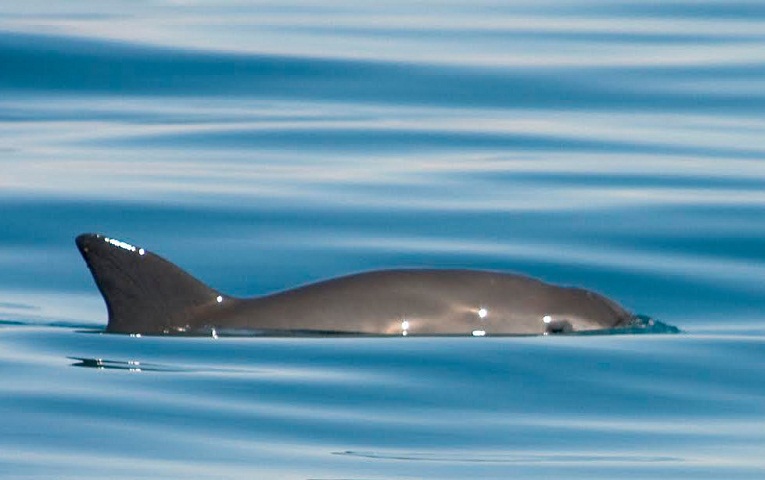WorldOceansDay: vaquita porpoises are fast dying out – can a radical rescue plan save them?

It’s World Ocean Day, so spare a thought for the vaquita – by the end of 2017, there could be just 15 of these small porpoises left. In a few months, conservationists will converge on the Gulf of California in a last-ditch effort to save the vaquita from extinction, a species of tiny porpoise. The scientists face an unprecedented challenge: to bring as many vaquita into captivity as possible. When the Vaquita CPR rescue plan was announced back in April, I interviewed several scientists for Nature News. At that point, the best estimate was that there were just 30 vaquita left. It now looks like there are fewer than this. At the end of April, members of the Comité Internacional para la Recuperación de la Vaquita (CIRVA) met in La Jolla, California to review the latest data. Between 6 March and 17 April this year, acoustic monitors set in the Gulf of California recorded the vocalisations of just two vaquita, “far fewer than expected based on detection levels in 2016.” A further two individuals were sighted on 1 May. But, according to the report from the CIRVA meeting published last month, “these observations indicate that the extremely small vaquita population has been further reduced in size in the past few months.” Indeed, between 2015 and 2016, the population halved from 60 to 30 and “this trend appears to be continuing in 2017.” That would mean that there could just be 15 left by the end of the year. The porpoise decline is mainly because they are being caught and drowned in gillnets set in the in the Gulf for huge bass-like fish called the totoaba. In 2015, the Mexican government imposed a two-year ban on this fishery. “Thanks to the two-year ban we still have vaquita,” Lorenzo Rojas-Bracho of the Instituto Nacional de Ecología y Cambio Climatico in Ensenada, Mexico and chair of the Comité Internacional para la Recuperación de la Vaquita (CIRVA) told me back in April. “Without it we wouldn’t have anything by now.” But as the totoaba’s swim bladder can fetch tens of thousands of dollars on the black market in China, there are plenty of fisherman prepared to flout the ban. “There’s so much money in the black market for the totoaba’s swim bladder. Nobody has been able to control illegal fishing 100%.” With gillnets still in place and the vaquita population in freefall, there is a real urgency. The first step of the rescue plan will be to catch as many of the remaining vaquita as possible. This will take place in October when the Gulf is relatively calm and sightings are easier to make. The idea is to transfer any captured vaquita by vessel small pens set in the Gulf until the immediate danger posed by gillnets has been removed. The project will involve many firsts. Nobody has ever attempted to catch a vaquita alive. Nobody has ever transported a live vaquita. Nobody has ever kept a vaquita in captivity. And nobody, therefore, has ever overseen captive breeding in this species.

